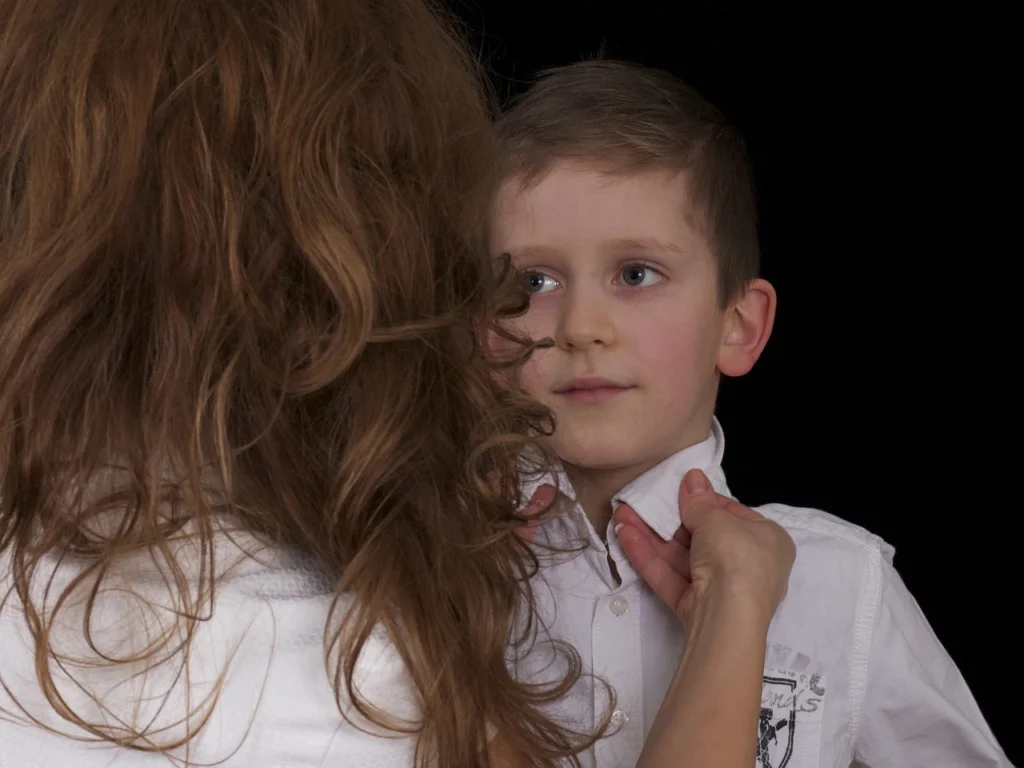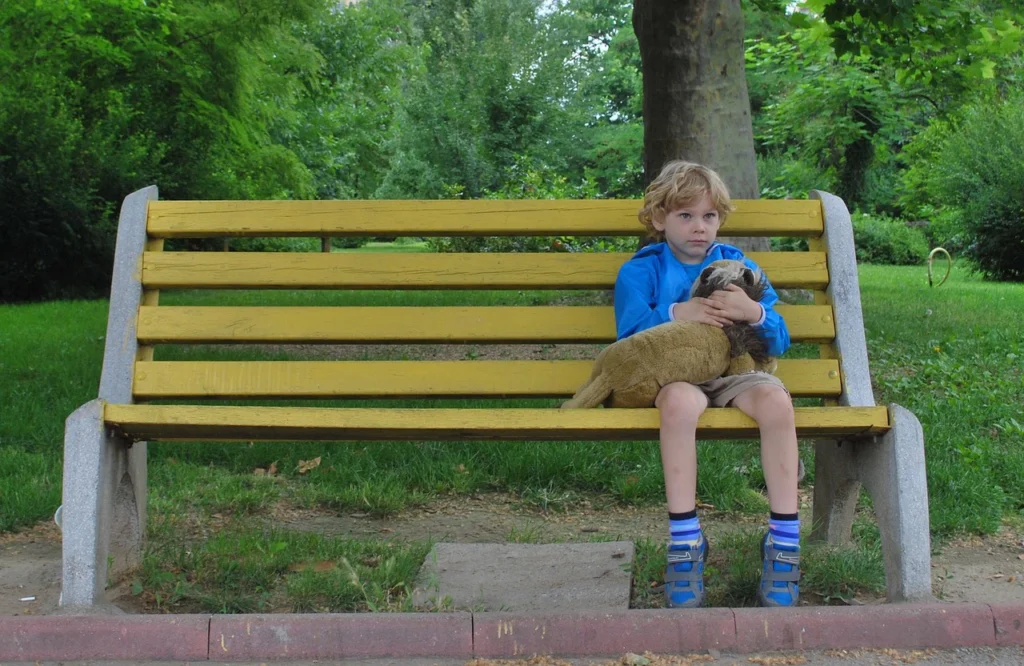What is the definition of parental alienation in Australian Family Law?
Parental alienation is a term used to describe a situation where one parent manipulates or influences a child’s feelings or perceptions towards the other parent in a negative way. This often leads to children distancing themselves from one parent or showing resentment towards them.
This dynamic can be highly distressing and harmful for the child, who may feel pressured to align with one parent over the other. It can also affect the alienated parent, leaving them feeling confused, hurt or angry. Parental alienation may occur during or after a separation or divorce, especially in cases where there is ongoing conflict or family violence.
Glossary
- Parental alienation: A harmful process where one parent turns a child against the other parent or undermines the child’s relationship with the other parent.
- Alienated parent: The parent who is unfairly rejected by their child due to the actions of the other parent.
- Alienating parent: The parent who uses tactics to undermine the child’s relationship with the other parent.
- Alienated child: A child caught in the middle, experiencing confusion and distress due to parental conflict.
- Parental alienation syndrome: A pattern of behaviour in children who are alienated from one parent, often displaying hostility and rejection.

What causes a parent to alienate their child from the other parent?
The aim of parental alienation tactics can vary but often involves one parent attempting to control the child’s relationship with the other parent. While parental alienation can be unintentional, in some cases, it may form part of a broader pattern of psychological manipulation towards the alienating parent’s former partner.
It is often observed in family law matters after a child refuses to spend time with one parent, despite having previously shared a positive relationship. Alienation may be motivated by one parent’s resentment towards the other parent.
Motivations behind an alienating parent’s actions can vary and may include:
- Anger or unresolved hurt directed at the other parent.
- A desire for financial gain, such as securing increased child support or time with the child.
- A need to ‘win’ or control the situation.
- A means of continuing to harm the other parent post-separation.
- Underlying mental illness or personality disorders.
What does parental alienation look like?
Parental alienation can manifest in various ways, but the key theme is that one parent is manipulating a child towards the other parent. It’s a sadly common phenomenon in family law that can be incredibly damaging to children and the alienated parent.
Examples of one parent alienating the other parent include:
- Making negative comments about the other parent: Speaking badly about the other parent in front of or to the child, suggesting they are unloving, irresponsible, or untrustworthy.
- Limiting contact: Creating barriers to contact, including refusing phone calls, making excuses to cancel visits, or restricting access without a legitimate reason.
- Forcing the child to choose sides: Pressuring the child to take sides in conflicts or creating situations where the child feels they must reject one parent to please the other.
- Rewriting family history: Telling the child altered or exaggerated stories about past events to portray the other parent negatively.
- Undermining the other parent’s authority: Refusing to support the other parent’s rules or discipline methods, making the other parent seem unreasonable or overly strict.
- Interfering with communication: Withholding or intercepting letters, messages, or gifts between the child and the other parent or discouraging the child from communicating with them.
- Encouraging the child’s loyalty: Rewarding or praising the child for showing loyalty or alignment with one parent’s views, especially if this is at the expense of the other parent.
- Making false allegations: Accusing the other parent of inappropriate behaviour or wrongdoing without evidence, often leading to investigations that disrupt the child’s relationship with that parent.
- Sharing inappropriate details of legal matters: Telling the child about ongoing legal disputes, such as parenting issues or financial conflicts, in a way that involves them in adult matters and pressures them to support one parent.
- Displaying emotional manipulation: Using guilt or emotional appeals to make the child feel that spending time with the other parent would hurt or betray the primary parent.
- Encouraging dependency: Fostering the child’s emotional or physical dependence on one parent while suggesting that the other parent is unreliable or incapable of meeting their needs.
- Withholding affection: Expressing disappointment, sadness, or withholding affection when the child spends time with the other parent or expresses positive feelings toward them.
Understanding parental alienation is critical for parents, health professionals and legal professionals involved in family law cases. Identifying behaviours associated with parental alienation can help parents understand patterns that may be influencing their relationship with their child.

What are the signs that a child is being alienated from one of their parents?
Parental alienation can manifest in various ways, often impacting the child’s emotions, behaviour, and relationships. Recognising these signs early is essential to addressing the issue effectively.
- Child’s behaviour and rejection: The child suddenly rejects one parent without a justifiable reason, often showing a strong preference for the other parent, which may indicate parental alienation.
- Making negative comments: A child who frequently makes negative comments about one parent, mirroring the other parent’s views, may have experienced psychological manipulation, causing psychological harm.
- Attachment issues with family members: Alienated children may avoid not just a parent but also extended family members, showing signs of disrupted attachments due to ongoing custody issues.
- A child may feel enormous pressure: Children involved in parental alienation may feel pressured to align with one parent, which can cause lasting psychological harm and distress.
- Black & white thinking: Expressing or thinking that one parent is ‘good’ and the other is ‘bad’, with no context or logical reasoning
- Having a newly ‘favoured’ parent who shows behaviours of alienation: If a child suddenly starts viewing one parent as preferred or favoured, and that parent is engaging in behaviours of alienation against the other parent, it’s important to consider that alienation may be a cause or factor.
Signs of a healthy child & co-parenting relationships
- Parents who foster connection with their children and the other parent in the best interests of the child
- Children who see both parents as human, with strengths and weaknesses
- Separated parents who have challenges, conflict and differences that children may or may not be aware of – but who never place their children in the middle or encourage them to ‘take sides’
- Parents who communicate privately and reach agreements, and then approach children with a unified front and back each other up
- Parents who keep negative personal feelings and opinions of the other parent to themselves or address things directly with the other parent rather than influencing children with their opinions.
How does parental alienation affect children?
Parental alienation can have profound and long-lasting effects on children, family dynamics, and mental health.
Research shows that children who are forced into this type of dynamic have greater instances of anxiety, trauma reactions, mental health issues, bonding issues and also higher rates of substance abuse and addiction later in life.
Children caught in situations of parental alienation may feel compelled to take sides, especially if one parent expresses anger, resentment, or hatred toward the other. In extreme cases, children may align with one parent out of fear or a perceived need for safety.
The long-term effects on children
The long-term impact of parental alienation can be significant. It can damage the targeted parent-child relationship, leading to feelings of loss, confusion, and emotional distress for the child. Unresolved alienation can also contribute to mental health issues such as anxiety, depression, and trust difficulties as the child grows into adulthood. Early mental health support is critical in mitigating these effects and fostering healthier family relationships.
Parental alienation is sometimes confused with estrangement or legitimate abuse, but it is increasingly recognised as a form of abuse in its own right, affecting both the targeted parent and the children involved. For instance, spying on the other parent or involving the child in hostile behaviours can harm the child’s emotional wellbeing, making them feel trapped in conflict.

What is passive-aggressive parental alienation?
Passive-aggressive parental alienation involves subtle behaviours, such as dismissing the other parent’s role or discouraging the child from engaging with them, rather than overtly undermining their relationship.
It is a more covert form of alienation that can be harder to detect or may encourage a child to believe they came to their current feelings about the alienated parent through independent thinking.
Levels of parental alienation
- Mild: The child resists contact but can still interact positively with the alienated parent.
- Moderate: The child shows hostility and struggles to engage with the alienated parent.
- Severe: The child completely rejects the alienated parent with no justification.
Is parental alienation the same as family violence or child abuse?
Parental alienation has many similar crossovers with family violence and child abuse. It’s often noted by professionals in these areas that the presence of power and control dynamics defines family violence. Alienation can be extremely distressing to children and the alienated parent and have significant long-term impacts, and some behaviours may be seen as child abuse.
Parental alienation and coercive control
Parental alienation is a form of emotional abuse and may also be a manifestation of coercive control directed at the alienated parent and child or children. It can be both a symptom of abusive behaviours within the family and an intentional action by one parent to exert dominance or power over the other. This complex dynamic makes recognising and addressing parental alienation essential to protecting children and supporting healthier family environments.
How is parental alienation viewed in Australian family law?
From a legal perspective, Australian courts are mindful of the best interests of the child and can consider allegations of alienation when determining parenting arrangements. Courts focus on making parenting orders that promote a child’s wellbeing and aim to encourage positive relationships with both parents wherever possible.
Australian family law recognises the detrimental effects of emotional and psychological abuse on children, which many aspects of genuine parental alienation mirror. Proving the effects on children and the targeted parent can be challenging. Courts often rely on psychological evaluations, family reports, and evidence of alienating behaviours.
Legal solutions may include:
- Adjusting living arrangements to prioritise the child’s wellbeing.
- Court-ordered counselling or therapy for children and parents involved.
- Parenting courses or supervised visitation to foster healthier relationships.
- Family therapy to address the root causes and promote healing.
It’s important to balance the legal process’s potential impacts on children with the consequences of leaving parental alienation unaddressed. Seeking support from family law professionals can help navigate these challenges and prioritise the child’s best interests.
When is it not parental alienation?
There are some incidences of family law matters where one parent has alleged that the other parent has alienated them after they have been abusive towards the parents and/or child, including matters when child sexual abuse has occurred.
If a child’s parents have caused emotional, physical or psychological harm to a child previous to parental alienation occurring, this will be taken into account and balanced with allegations of alienation. This is why cases involving parental alienation are weighed carefully against the facts of a situation.
How is parental alienation addressed in Australian family law?
Parental alienation is a complex issue, and Australian family law provides several pathways to address it. The focus remains on the best interests of the child, ensuring their safety, mental wellbeing, and meaningful relationships with both parents, where appropriate.
Family Dispute Resolution (FDR)
Family dispute resolution is often the first step in addressing parental alienation. This process encourages parents to work collaboratively to resolve conflicts, focusing on creating parenting arrangements that prioritise the child’s needs.
Independent Children’s Lawyer (ICL)
In cases of suspected parental alienation, the Court may appoint an Independent Children’s Lawyer (ICL). The ICL represents the child’s best interests, ensuring their voice is heard and helping the Court make informed decisions about parenting arrangements.
Consulting mental health professionals
Mental health professionals can play a crucial role in parental alienation cases and can be accessed by a family member or, at times, by court order. They can assess whether a child’s rejection of a parent arises from legitimate reasons, such as prior abuse or psychological manipulation by the alienating parent. These evaluations provide critical evidence to help the Court understand the family dynamics and determine appropriate interventions.
Legal assistance & court orders
Parents dealing with parental alienation should seek legal advice about the ability of the Court to intervene in ways such as:
- Protecting the child’s best interests by adjusting parental responsibility or time spent arrangements.
- Order therapy, education or counselling for the child or parents.
- Address decision-making responsibilities, ensuring both parents can contribute to significant decisions regarding the child’s upbringing.
Family law and attachment theory
The courts increasingly consider attachment theory when evaluating matters involving children, including parenting matters in which parental alienation is a factor. This approach recognises that disrupting a child’s attachment to one parent due to alienation can cause psychological harm, potentially affecting their long-term emotional and mental health. The courts aim to preserve or restore the child’s healthy attachment to both parents, where possible.
Care, responsibility and decision-making
If alienation is proven, courts may:
- Adjust parenting arrangements to ensure the child spends time with both parents in a manner that fosters their wellbeing.
- Allocate parental responsibilities to safeguard the child’s development and decision-making stability.
- Implement supervised visitation if necessary to rebuild trust and safety in the parent-child relationship.
A holistic approach to resolution
Parental alienation requires careful legal, psychological, and therapeutic interventions to protect children and rebuild family relationships. If you suspect parental alienation, seeking advice from family law experts and mental health professionals can help create constructive solutions that prioritise the child’s best interests.

The best interests of the child
The Court prioritises the child’s best interests over any parent’s desires. While the alienating parent’s actions may stem from unresolved anger or control, the legal system focuses on ensuring the child has healthy, balanced relationships with both parents wherever possible.
The challenges of addressing parental alienation
Parental alienation is a complex issue with profound emotional and psychological effects on everyone involved. The child often experiences confusion, torn between conflicting loyalties, and may struggle to understand their feelings. The alienated parent, feeling rejected, might withdraw, inadvertently worsening the situation.
Meanwhile, the alienating parent may escalate the tactics, reinforcing the child’s alienation. If left unaddressed, this cycle can lead to long-term trauma and mental health issues for both the child and the targeted parent, making intervention critical.
Proving parental alienation can be difficult. Courts often rely on psychological evaluations and evidence of manipulation, and the process itself can be emotionally taxing for the family.
What can the alienated parent do?
Alienated parents should seek support from legal and psychological professionals to address the situation constructively. Early intervention, such as therapy and legal action, can help rebuild the parent-child relationship and mitigate further harm.
Understanding that the child’s behaviour may be a result of manipulation rather than genuine rejection is key to navigating the challenge.
Parents who are being alienated may demonstrate:
- Emotional withdrawal from the child.
- Feelings of helplessness or depression.
- Ongoing psychological distress from the alienating parent’s abuse.
How can I get help if parental alienation is affecting my family?
If you or someone you know is experiencing a situation of parental alienation, you do have some options. It can be difficult to prove in some instances and in more serious cases. Unfortunately, children may be requested by the courts to attend psychological assessments to ascertain the impacts.
Take early action
Recognise signs early and seek help from legal professionals, therapists, or family counsellors.
Legal support
Courts can protect a child’s best interests, enforce parenting orders, and help maintain parent-child relationships. Timely action is vital.
Therapeutic intervention
Family therapy can rebuild trust and communication, addressing the emotional harm caused by alienation.
Open communication
If possible, encourage your child to share their feelings freely to restore the parent-child bond.
Moving forward
Parental alienation is a complex issue that requires careful handling to protect children and rebuild family relationships. If you suspect parental alienation is affecting your family, consider seeking guidance from an experienced family lawyer to explore your options. Legal professionals can provide clarity and assist in implementing constructive solutions, ensuring the wellbeing of both the parent and the child.
This is general information only. Please contact us for expert legal advice that takes your unique personal situation into account prior to making any decisions based on this article.

